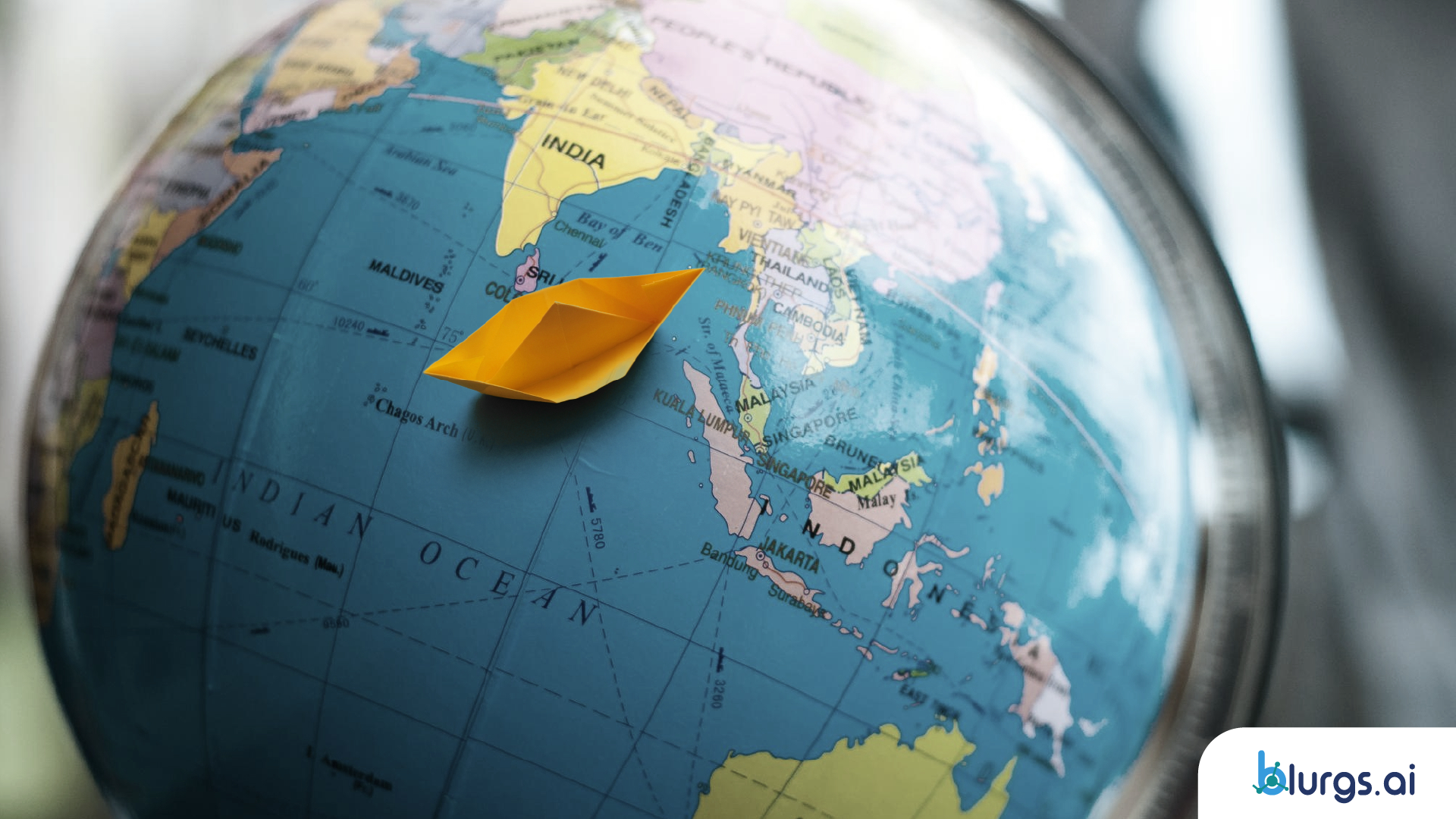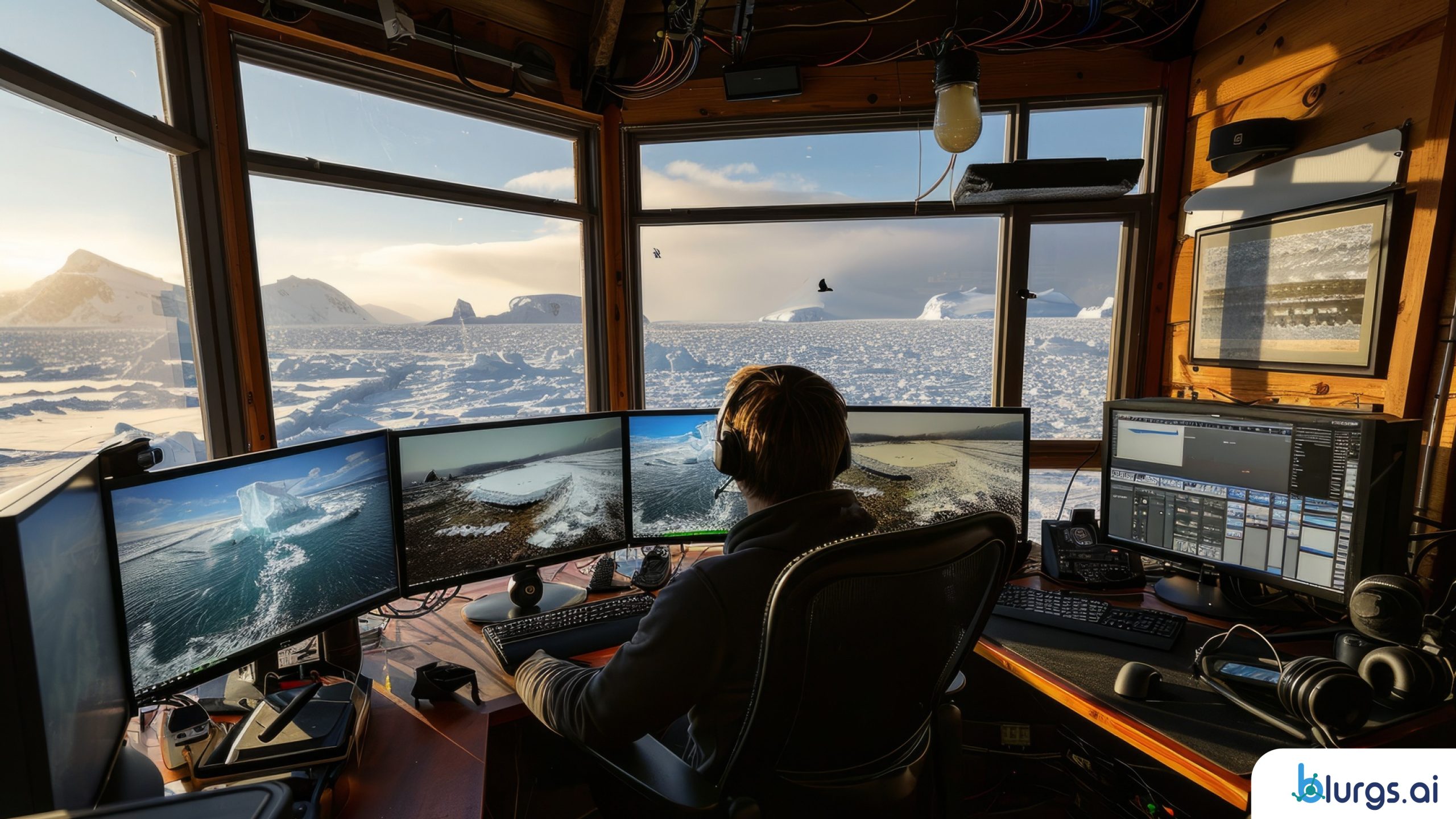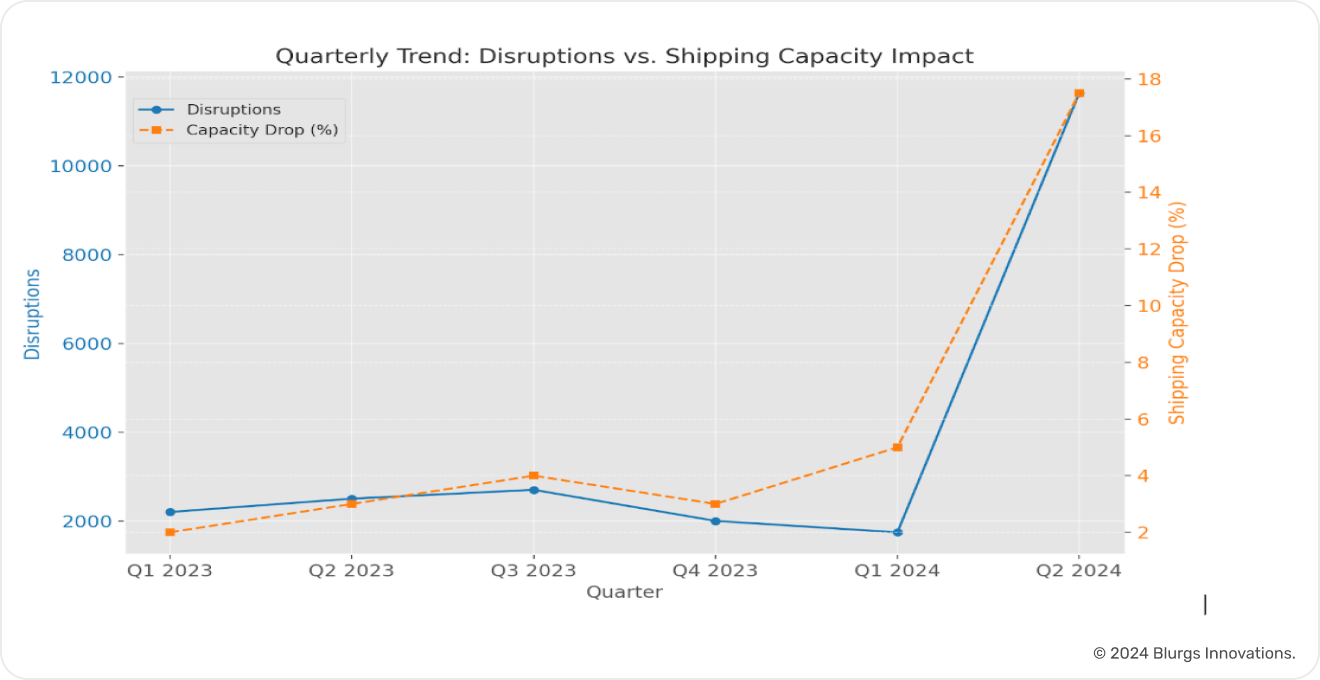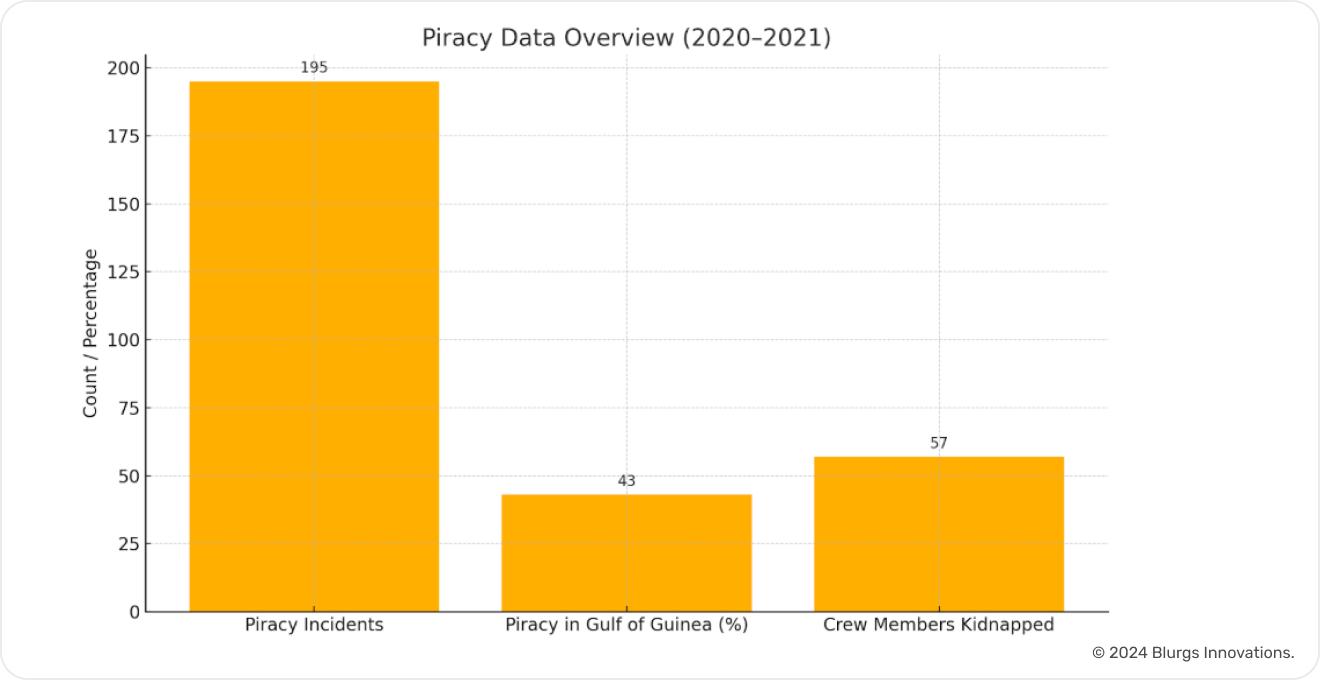A lot can change in a day.
A lot more can change in a month. And in 6 months, comparatively calmer seas can become a hotbed of geopolitical tensions.
That’s what has happened in the Asia-Pacific (APAC) region where tensions have escalated dramatically. This only doesn’t mean the potential for military combat.
The first to be affected is the shipping lanes. Recent escalations and threats in the region are stark reminders of the growing risks to important maritime routes.
So, why am I talking about maritime tensions all of a sudden? Because over 95% of India’s trade volume moves by sea. Any disruption to these routes could have a ripple effect across the country’s energy imports, exports, and overall economic health.
Most importantly, the events I’ll discuss are not isolated. They are part of a larger, ongoing shift that threatens the stability of global supply chains.
The question is no longer if these risks will affect Indian businesses, but when—and how prepared are we to navigate these challenges?
Strategic Importance of APAC Shipping Lanes and Emerging Risks
The APAC region is home to some of the most vital shipping lanes in the world. The Indian Ocean, often referred to as the “Highway of the Seas,” is crucial not only for India’s energy security but also for its ambitions as a global trading hub.
For instance, The Strait of Malacca alone sees the passage of over 84,000 vessels annually. And handles approximately 25% of the world’s traded goods, along with 30% of global oil shipments.
For India, these routes are indispensable, as a significant portion of the country’s energy imports, including crude oil, pass through the Indian Ocean.
Emerging Risks in the APAC Region
However, the strategic importance of these lanes also makes India vulnerable to emerging risks.
One of the most pressing challenges is China’s expanding naval presence in the South China Sea and its increasing control over key chokepoints like the Strait of Malacca.
This has raised concerns because we rely heavily on free passage for trade and energy needs.
Regional tensions are also a growing concern, with territorial disputes involving China, Taiwan, and the U.S. threatening to spill over into maritime conflict. Additionally, the resurgence of piracy and terrorism in high-traffic zones poses another layer of risk and unpredictability for maritime operations.
India’s proximity to these high-risk zones places it in a particularly vulnerable position.
But I look at this as a great opportunity.
India Can Play A Leading Role in Ensuring Maritime Security
With naval bases strategically located in the Andaman and Nicobar Islands, India is in a prime position to monitor and protect these vital lanes. These bases are essential in ensuring the safe passage of vessels through one of the busiest maritime routes in the world.
That’s why India’s naval capabilities and its proactive participation in regional security initiatives—such as joint exercises with the Quad alliance highlight its leadership. We play an active role in ensuring maritime stability for neighboring countries and the global maritime economy.
Economic Dependence on Shipping Lanes
India’s economic well-being is deeply intertwined with the stability of these shipping lanes. Over 70% of India’s oil imports pass through the Indian Ocean, and any disruption could severely impact India’s energy security.
The manufacturing and agricultural sectors also rely heavily on maritime trade routes for both raw materials and exports.
A stoppage in maritime trade would result in increased shipping costs, due to higher insurance premiums and longer routes. More worryingly it could lead to shortages in critical resources.
The Need for Proactive, Strategic Solutions
India has the enviable opportunity of leveraging advanced maritime technologies and deepening international collaborations to secure its maritime interests.
Maritime Surveillance Technologies and the Blue Economy
Yes, I’m talking about using advanced maritime surveillance but not just for protecting trade routes. It’s also a critical pillar in India’s broader Blue Economy aspirations.
India’s commitment to sustainable ocean-based economic development relies heavily on securing its waters and optimizing maritime operations.
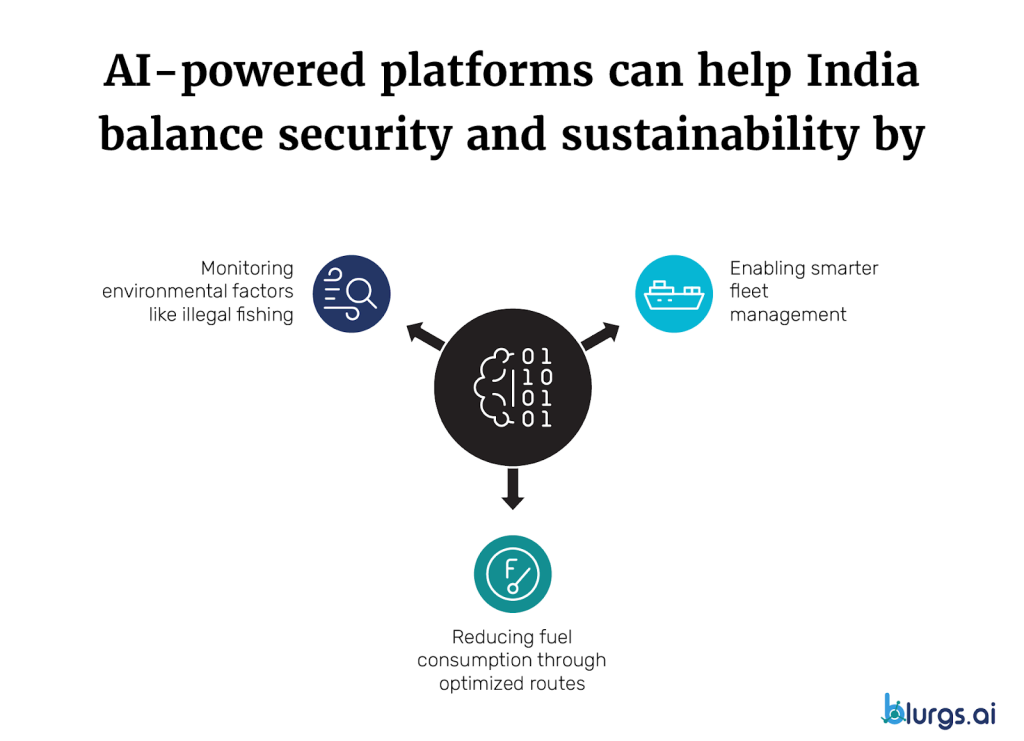
By investing in such technologies, India can safeguard its marine resources while driving growth in sectors such as fisheries, tourism, and renewable energy.
A Friend in India?
You can have all the tech in the world, but nothing can replace a friend.
I know there are no “friends” per se in the geopolitical scene. But it’s good to build on technological capabilities with strong international partnerships.
While the Quad alliance (India, U.S., Japan, Australia) plays a pivotal role in regional security, India’s collaborations extend beyond this group. Partnerships with ASEAN countries and strategic alliances with Japan and Australia, for instance, enhance security in the Indian Ocean Region (IOR).
Joint naval exercises, intelligence sharing, and increased maritime surveillance — can contribute to a more stable and secure maritime environment.
Strengthening Supply Chain Resilience
That said, too often we confuse maritime threats with external dangers. However, we fail to account for the potential vulnerabilities within global supply chains.
One key solution is to diversify supply routes and reduce reliance on vulnerable chokepoints like the Strait of Malacca. A notable example comes from the Indian petroleum industry, which faced disruptions during the COVID-19 pandemic due to geopolitical tensions and fluctuating oil supplies.
This is where AI-driven tools can prove pivotal. Indian businesses can predict potential disruptions and adjust their logistics in real time, ensuring minimal impact on operations.
Addressing Current Risks is Only Part of the Equation
The key is to look beyond immediate challenges and focus on the long-term vision of making India a global shipping and trading hub.
Proactive investment in maritime security is a forward-thinking approach that aligns with India’s broader aspirations for economic growth and leadership in the Indo-Pacific region. By integrating cutting-edge surveillance technologies, India can secure its waters while simultaneously driving innovation in its Blue Economy sectors.
The question is: Is your organization prepared to adapt to these evolving challenges and capitalize on emerging opportunities?
